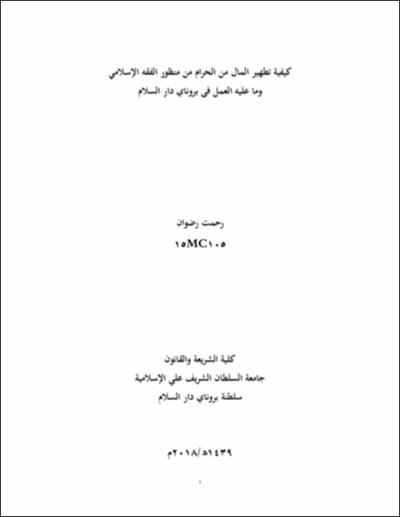| dc.description.abstract | The problem of research is that there are many people in the Muslim community who admix legal properties with illegal wealths. The biggest problem lies in their lack of knowledge about how to purify their properties from prohibited things, and to identify ways to get rid of forbidden wealths. The purpose of this research is to identify how to purify the wealth from all forbidden elements (haram), whether the wealth acquired particularly is haram because of its physical properties or because of its means of acquisition. To this end, the first part of the research was devoted to reviewing the types of forbidden wealth and relevant sections and the rational behind their prohibition in Islamic jurisprudence, in order to better understand the purposes of laws derived from the Islamic jurisprudence. The second aspect is devoted to the analytical study on how to purify the wealth from all elements of haram in various situations based on rulings of the Islamic jurists (fuqaha), and choosing the correct ones to examining them with the shar'iah rules. The third aspect focuses on the practical study on how to cleanse/purify the forbidden wealth in Brunei Darussalam. In this research, the researcher relied on the desk study, which is the inductive method to find out the provisions of gaining prohibited things in Islam and to obtain legal solutions. In addition, the researcher also applied field study through interviews with experts and specialists. The research concluded with several results, the most important is that the forbidden wealth is not considered as the possession of the one who acquired it, and it means that zakah is not obligatory out of it and also it is invalid inheritance to his heirs. The research also concluded that practical applications for purifying wealth in the Brunei Darussalam exists, but they are in need of certain improvements to reach almost perfection. The researcher recommends to expand the scope of wealth cleansing/purifying to include all types of prohibited funds from the State and distributing them to areas that is beneficial to public interests. | en_US |



